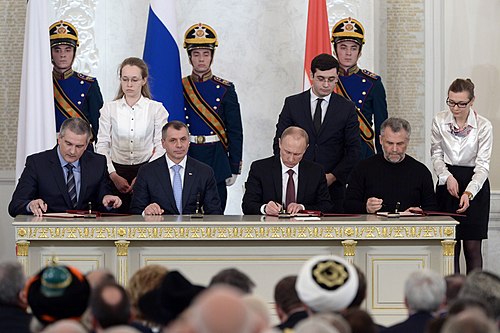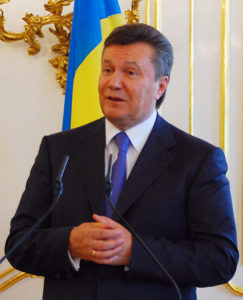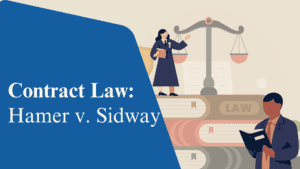The Nature of Ukraine’s Politics and Turmoil

1. Geopolitics and Turmoil in Ukraine
Located in Eastern Europe, Ukraine’s principal foreign policy goal is the well-known Euro-Atlantic integration. However, as Ukraine’s eastern part of territory borders Russia, the geopolitical factors renders Ukraine to be, in fact, constantly balancing its relationships between the European Union, and Russia.
Following the collapse of the Soviet Union in 1991, Ukraine regained its independence. The newly independent Ukraine proclaimed itself a neutral state and established a limited military relationship with Russia, other Commonwealth of Independent States (CIS) nations, and form a NATO partnership.
Struggling between pro-Russian and pro-Western policies, the decision of establishing closer ties with either Russia or Western states has been the main contributor to Ukraine’s political turmoil.
From the Orange Revolution, the Euromaidan and the Revolution of Dignity, to the annexation of Crimea, all these months-long waves of demonstrations, protests, and even conflicts are closely tied to the issues of choosing which camp to develop partnership—the Russian camp or the Western camp.
2. Key Factor—The Pro-Russian Viktor Yanukovych

Viktor Yanukovych is the man who is said to be the causes of major political unrests in Ukraine. He was the fourth President of Ukraine from 2010 until 2014 when he was removed from office in the Revolution of Dignity in 2014.
Viktor Yanukovych was sentenced to thirteen years in prison for high treason in 2019 and is currently living in exile in Russia.
The following paragraph will explore how he played the roles in the Orange Revolution, the Euromaidan, Revolution of Dignity, and how these revolutions would eventually build up to the annexation of Crimea.
- The Orange Revolution in 2004
In 2004, pro-Russian presidential candidate Viktor Yanukovych was declared the winner of the elections. Nonetheless, the elections had later been found to be rigged in significant part and the election outcome sparked public outrage.
Combined with the scandalous elections that had been ruled by the Ukrainian Supreme Court to be wired, the suspected Russian involvement in poisoning the opposition candidate further led to the Orange Revolution.
The Orange Revolution was a series of peaceful demonstrations and political events that eventually casted Viktor Yanukovych out of power.
- The Euromaidan in 2013
The Euromaidan demonstration began in the end of 2013 when President Viktor Yanukovych withdraw from the signing of an association agreement with the European Union. He instead chose to develop closer relationship with Russia and the Eurasian Economic Union.
The demonstration were fueled by the public dissatisfaction of “widespread government corruption”, “abuse of power”, and “violation of human rights in Ukraine”. The waves of protests in the end escalated to the call for the resignation of President Viktor Yanukovych.
The Euromaidan demonstration resulted in the Ukrainian revolution in 2014, known as the Revolution of Dignity.
- The Revolution of Dignity in 2014
The Revolution of Dignity took place at the end of the Euromaidan protests in 2014 when multiple violent clashes between protesters and riot police ravaged the Ukrainian capital Kyiv.
The Revolution resulted in the overthrow of the Ukrainian government and the removal of elected president Viktor Yanukovych.
- The Annexation of Crimea
The ousting of pro-Russian President Yanukovych impelled Russian President Vladimir Putin to commence on the plan to annex Crimea in February 2014 since a Ukraine without a president who supports Russia is deemed extremely threatening to Putin.
The Ukrainian forces was disarmed by Russian troops and intelligence agents directed by Vladimir Putin in no time. Crimea was subsequently taken control of by Russian troops.
On 16 March 2014, a referendum under Russia occupation was held to declare that 97 percent of the residents in Crimea wished to join with Russia. The treaty of accession of the Republic of Crimea in the Russian Federation was signed two days after.
3. Implications
Ukraine has had close ties with all of its neighbors for a long time; it had been a member of the North Atlantic Cooperation Council and had planned for eventual NATO membership; it also had full support of all major political parties for full eventual integration into the European Union.
However, both plans for eventual membership of NATO and integration into the European Union were suspended altogether after the pro-Russia President Viktor Yanukovych was elected in 2010.
Despite pro-Russia President Viktor Yanukovych’s efforts to establish close ties with Russia, the continual deterioration of Russia–Ukraine relations instead led to the collapse of Viktor Yanukovych’s government. The tension between Russia–Ukraine has not been de-escalated ever since the annexation of Crimea in 2014.
